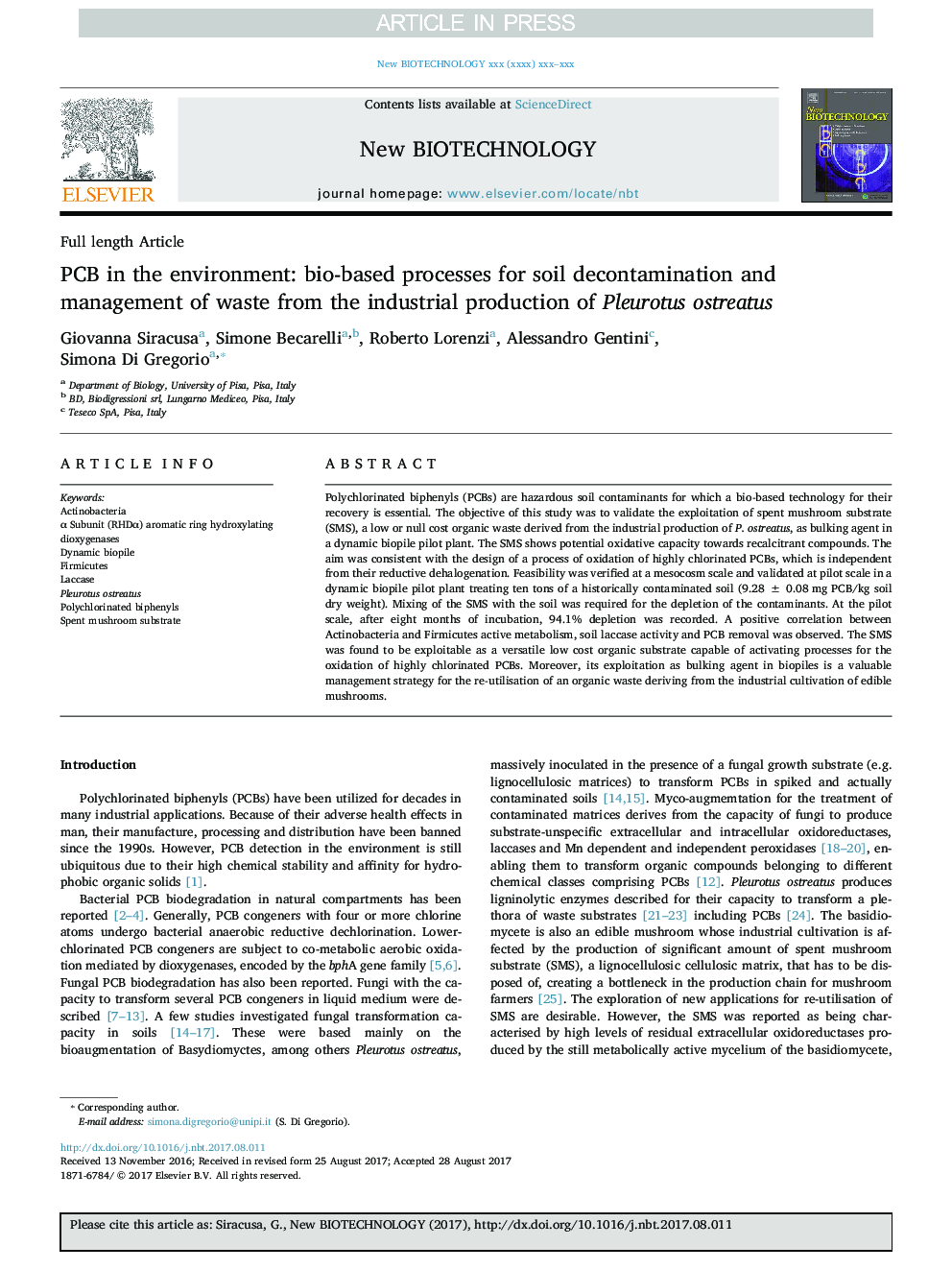| Article ID | Journal | Published Year | Pages | File Type |
|---|---|---|---|---|
| 4754880 | New Biotechnology | 2017 | 8 Pages |
Abstract
Polychlorinated biphenyls (PCBs) are hazardous soil contaminants for which a bio-based technology for their recovery is essential. The objective of this study was to validate the exploitation of spent mushroom substrate (SMS), a low or null cost organic waste derived from the industrial production of P. ostreatus, as bulking agent in a dynamic biopile pilot plant. The SMS shows potential oxidative capacity towards recalcitrant compounds. The aim was consistent with the design of a process of oxidation of highly chlorinated PCBs, which is independent from their reductive dehalogenation. Feasibility was verified at a mesocosm scale and validated at pilot scale in a dynamic biopile pilot plant treating ten tons of a historically contaminated soil (9.28 ± 0.08 mg PCB/kg soil dry weight). Mixing of the SMS with the soil was required for the depletion of the contaminants. At the pilot scale, after eight months of incubation, 94.1% depletion was recorded. A positive correlation between Actinobacteria and Firmicutes active metabolism, soil laccase activity and PCB removal was observed. The SMS was found to be exploitable as a versatile low cost organic substrate capable of activating processes for the oxidation of highly chlorinated PCBs. Moreover, its exploitation as bulking agent in biopiles is a valuable management strategy for the re-utilisation of an organic waste deriving from the industrial cultivation of edible mushrooms.
Keywords
Related Topics
Physical Sciences and Engineering
Chemical Engineering
Bioengineering
Authors
Giovanna Siracusa, Simone Becarelli, Roberto Lorenzi, Alessandro Gentini, Simona Di Gregorio,
